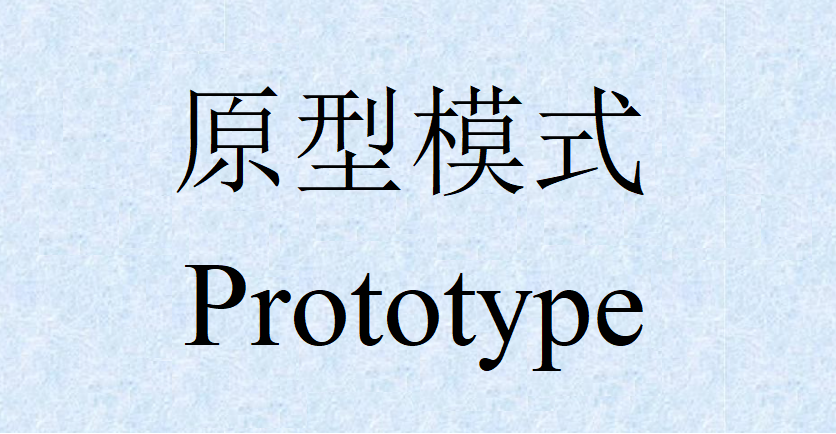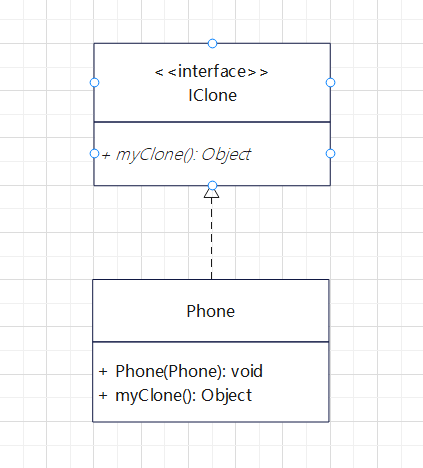
定义
原型模式(Prototype):属于创建型模式,通过拷贝原型实例创建新的对象,而无需知道对象的任何创建细节。
代码实战
1 | interface IClone { |
类图

特点
原型模式定义了一个接口,其中只有一个clone方法。如果可以clone的类就去实现这个方法,可以在clone方法中调用拷贝构造,也可以不提供拷贝构造,直接写在clone方法体中。
Java语言提供了这样的一个接口Cloneable,如果想调用某个类的clone方法,就实现该接口即可。
总结
原型模式常用于经常拷贝的对象中,可以保证内部成员对外部的不感知,代码非常简单,希望小伙伴们能够掌握它。